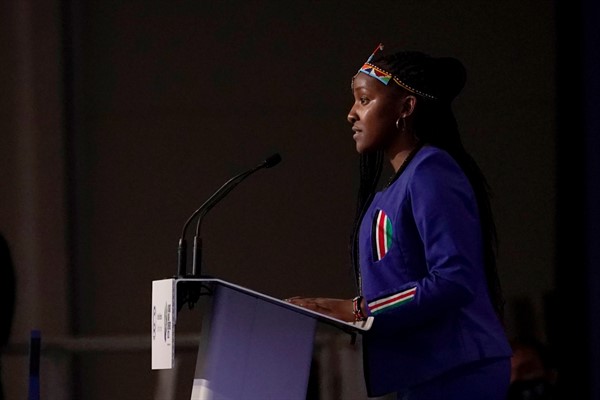The 26th United Nations Climate Change Conference, or COP26, currently taking place in Glasgow, Scotland, has brought together a wide array of African leaders, policy specialists, businesspeople and activists focused on one goal: how to square the goal of reaching net zero carbon dioxide emissions globally with the continent’s industrialization needs and financial realities.
During the first two days of the summit, more than 25 African leaders representing nearly half of the continent’s 54 countries took center stage to make the case for a justice-oriented approach to solving the climate crisis. Speaking Tuesday at an Africa-focused event at the conference, Congolese President Felix Tshisekedi—who is also the African Union’s incumbent rotating chairperson—summed up the continent’s position, saying that the estimated $12.5 billion Africa needs to raise for climate adaptation projects “is a starting point rather than a ceiling, and it will contribute to building trust and confidence.” Tshisekedi’s predecessor as AU chair, South African President Cyril Ramaphosa, argued in a Financial Times op-ed that “South Africa has big plans for its journey to net zero but needs assistance from the nations responsible for climate change.” Collectively, the continent’s leaders sought to put pressure on wealthier nations to live up to a 2009 pledge to deliver $100 billion a year by 2020 to support developing countries’ emissions reduction and adaptation plans. The most recent data for 2019 shows an estimated $20 billion shortfall.
Africa’s 54 nations contribute only about 3 percent of global emissions, a point that has not gone unmentioned by Tshisekedi and other African leaders, policy specialists and climate activists, who are pressing the international community to do more to help poorer and vulnerable nations adapt to climate change. Akinwumi Adesina, the president of the African Development Bank, detailed the cost of Africa’s climate transition in his remarks to the conference, echoing sentiments from a joint op-ed he published with WTO Director-General Ngozi Okonjo-Iweala, Niger’s former prime minister, Ibrahim Mayaki, and the executive secretary of the U.N. Economic Commission for Africa, Vera Songwe, in which they stated pointedly that “Africa needs decisive action rather than more encouraging words.”

